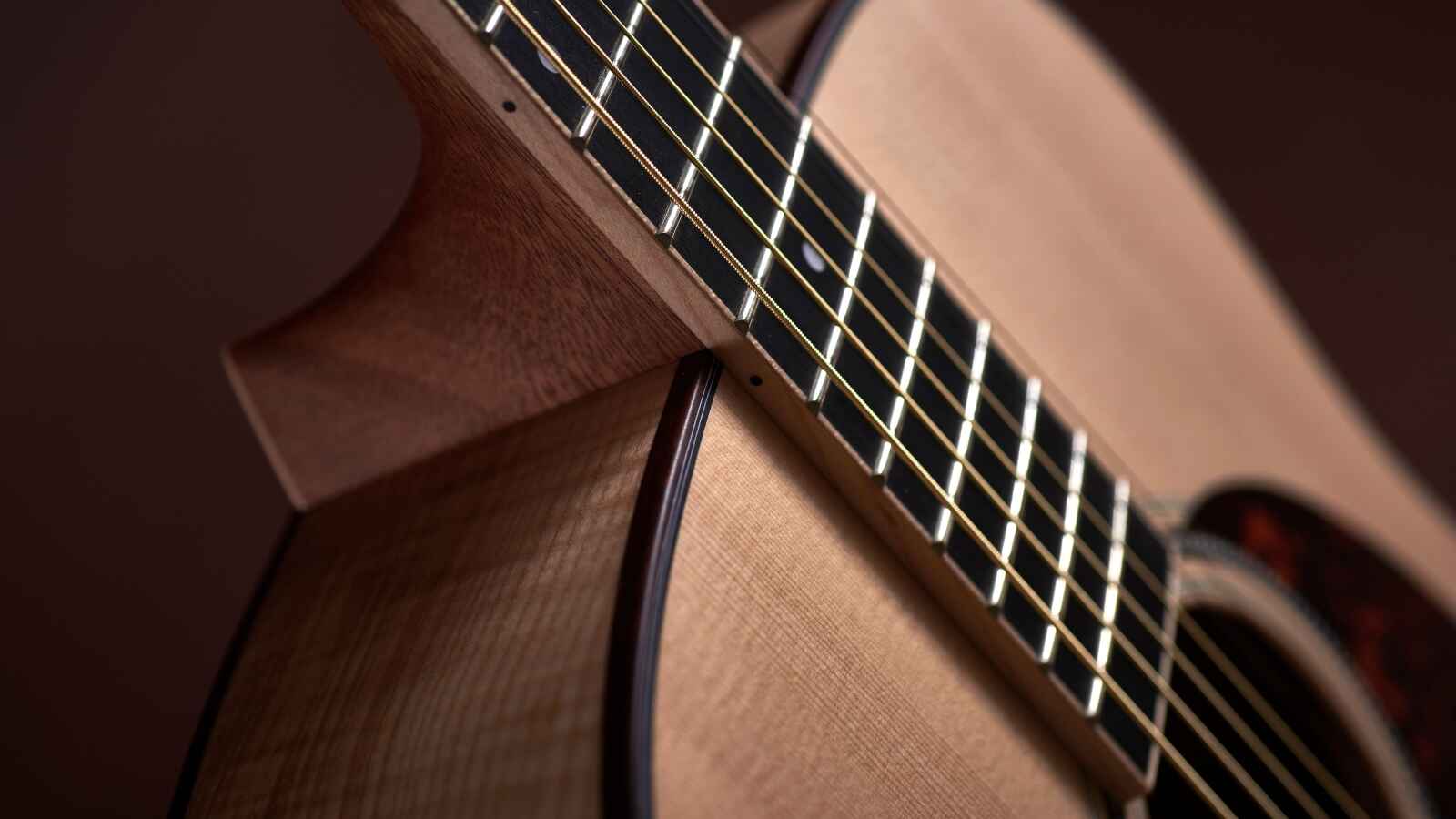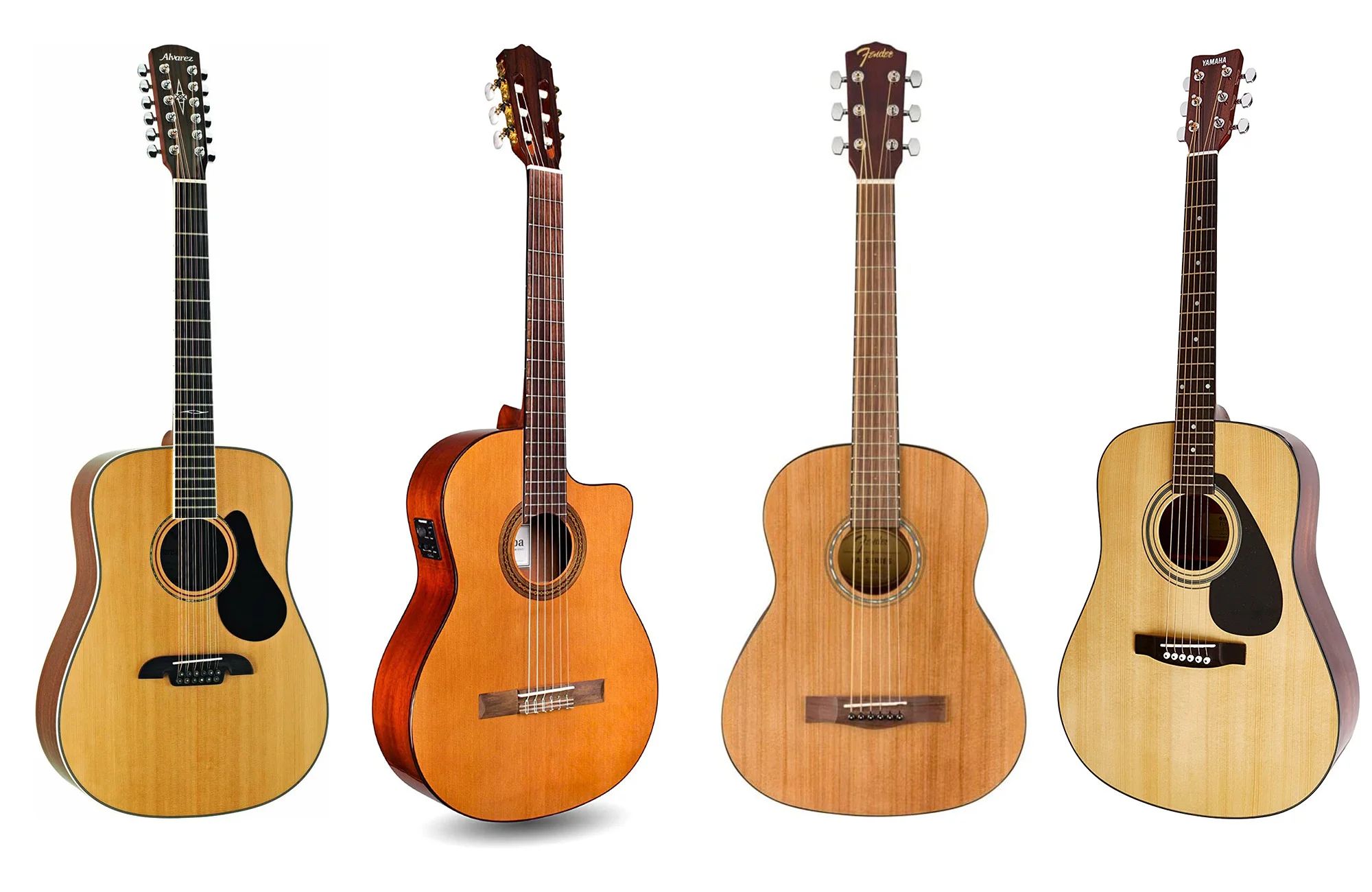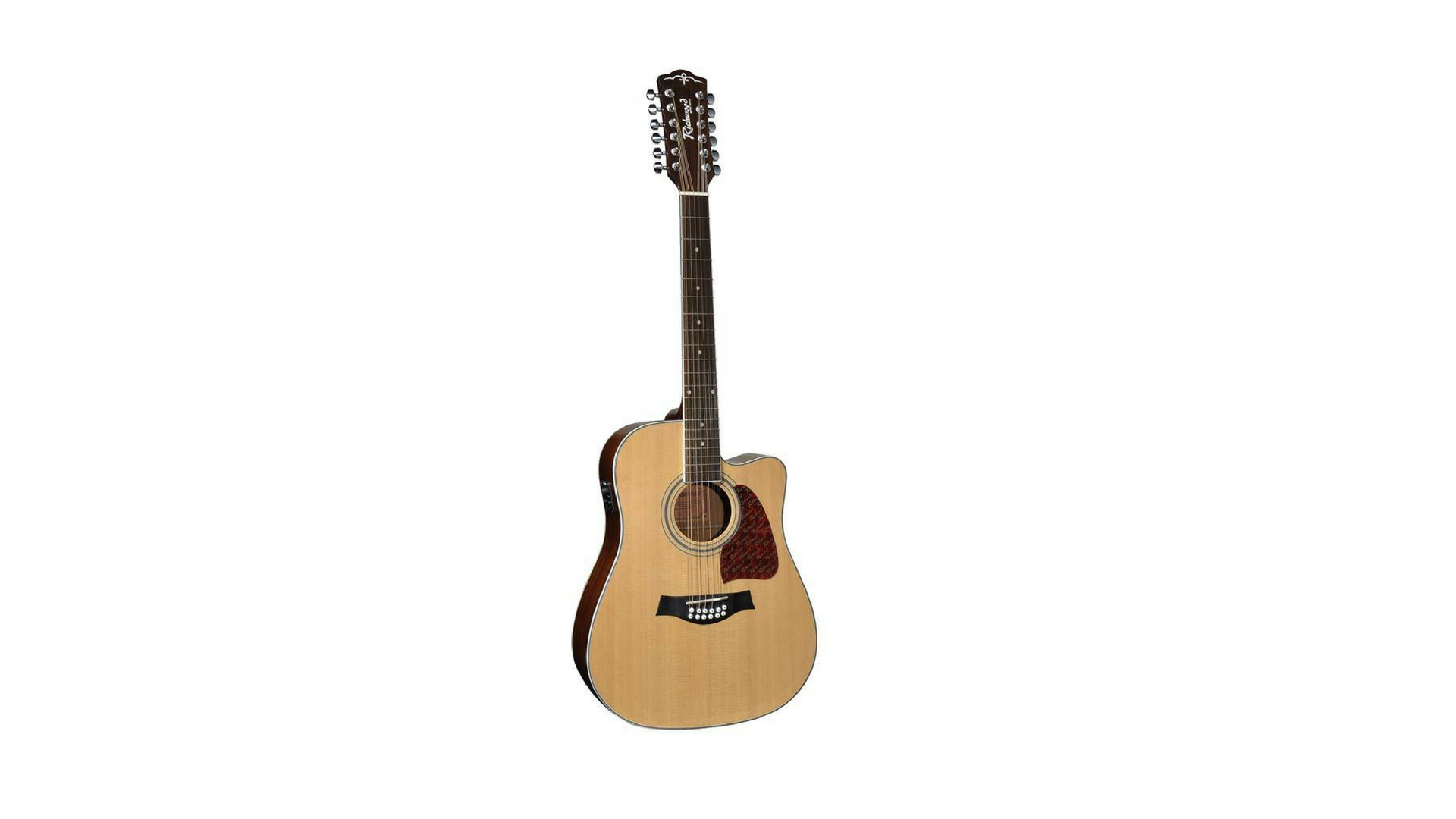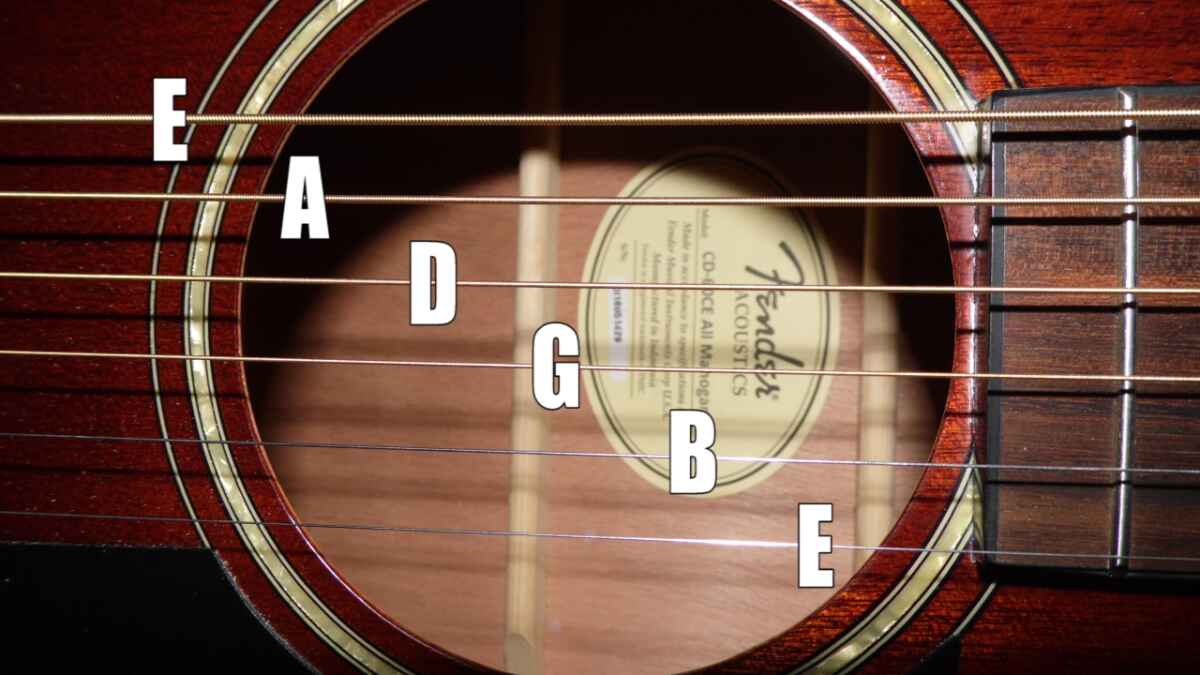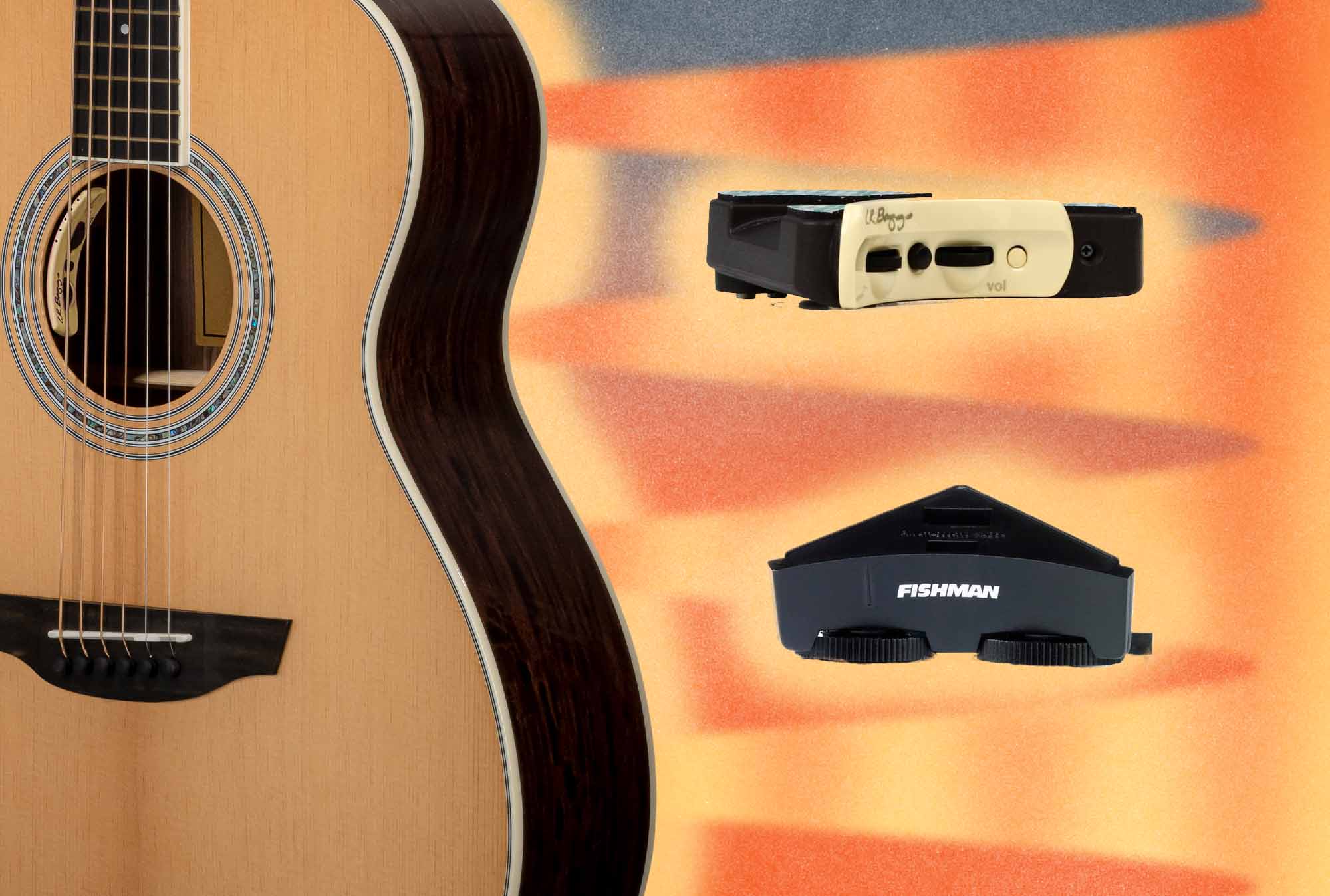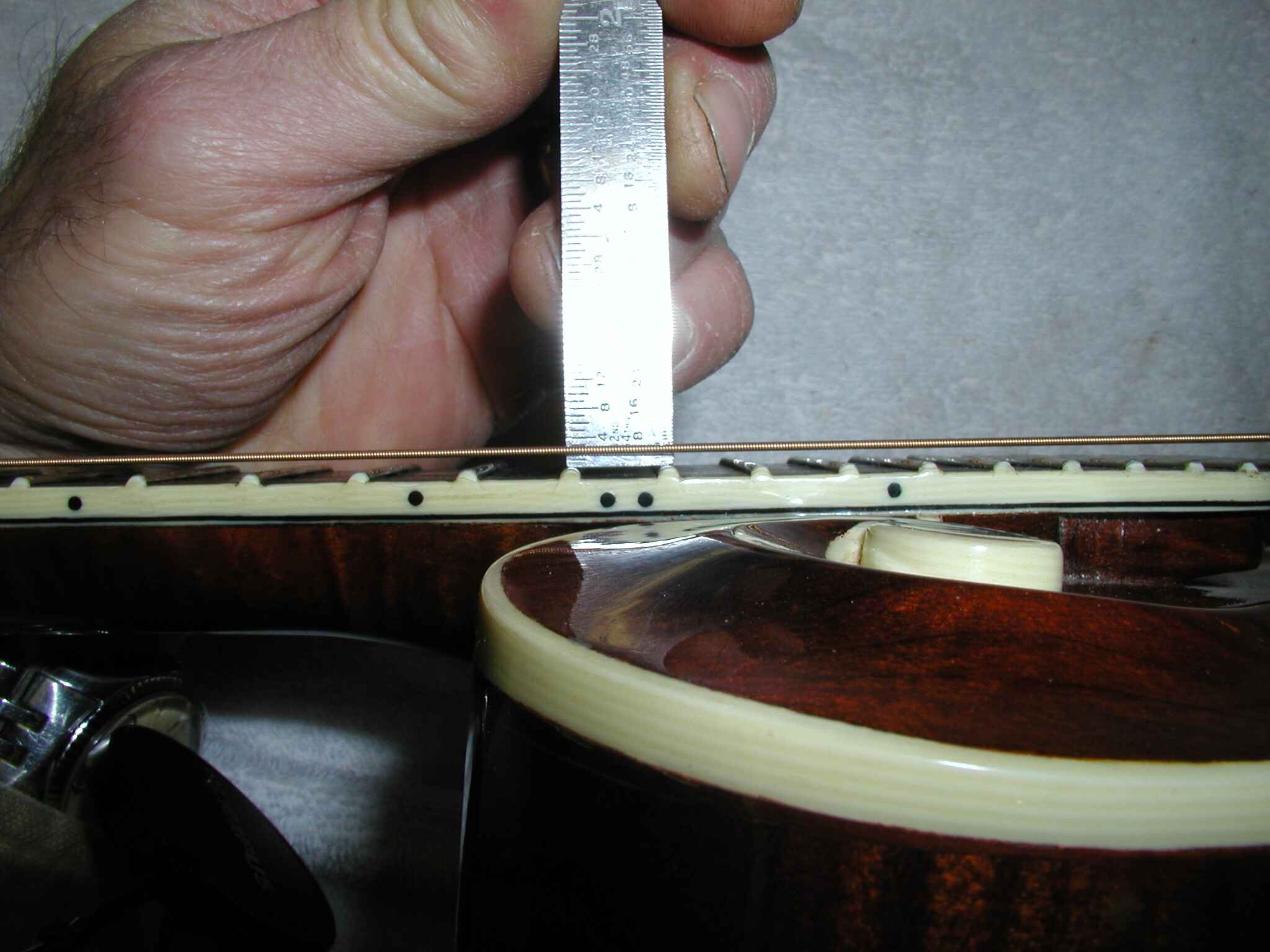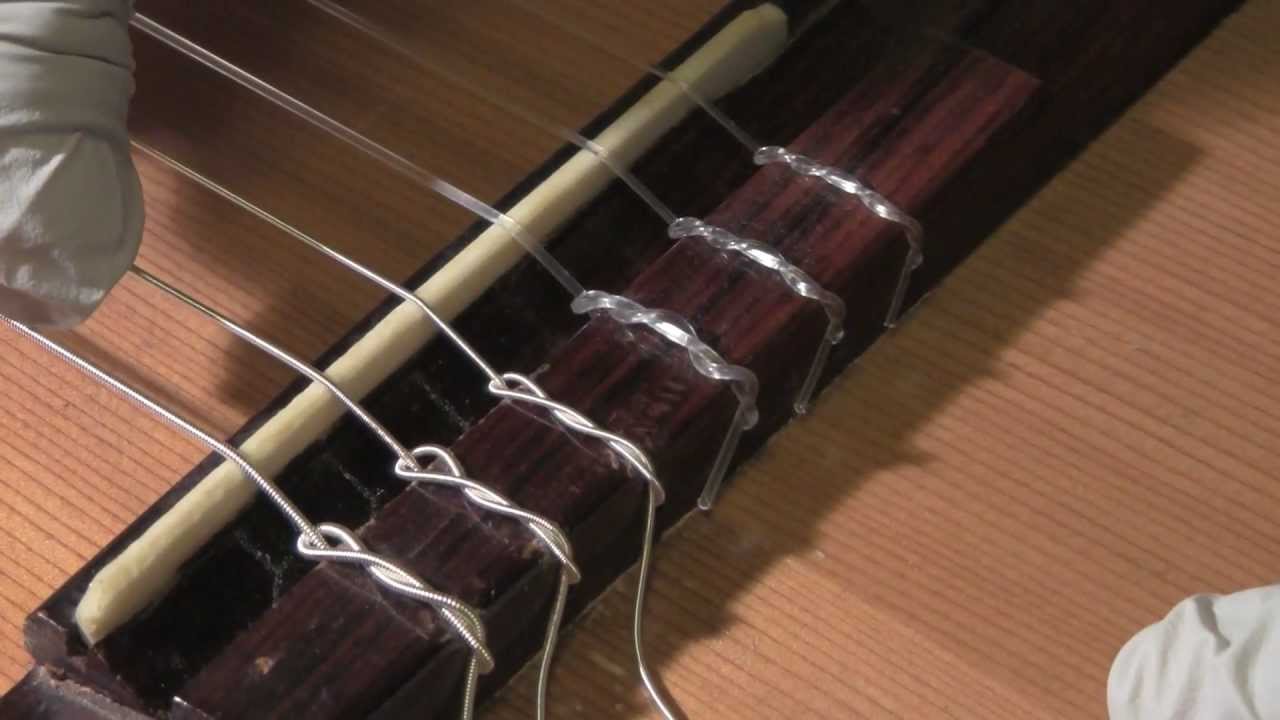Introduction
Choosing the right strings for your acoustic guitar is an essential factor in achieving the perfect sound and playability. The strings you use can make a significant difference in the tone, projection, and overall performance of your instrument. With a wide variety of options available on the market, it can be overwhelming to determine which strings are the best fit for your playing style and musical preferences. However, by understanding the different factors to consider and the various types of strings available, you can make an informed decision that will enhance your guitar-playing experience.
Finding the ideal strings for your acoustic guitar is akin to finding the right pair of shoes. Just as every person has different feet and activities, each guitar player has unique playing techniques and musical styles. The strings you choose will directly influence the comfort, tone, and durability of your instrument. Whether you’re a beginner or a seasoned guitarist, it’s crucial to pay attention to this often overlooked aspect of guitar maintenance.
In this article, we’ll delve into the key factors to consider when selecting acoustic guitar strings and explore the different types available. By the end, you’ll have a better understanding of what each type offers and be equipped to make an educated decision that suits your playing style and preferences. So, without further ado, let’s dive in and discover the best strings for an acoustic guitar.
The Importance of Choosing the Right Strings
Selecting the right strings for your acoustic guitar is crucial for several reasons. Firstly, it directly impacts the tone and sound quality of your instrument. Different types of strings produce distinct tones, with variations in brightness, warmth, and sustain. By choosing the right strings, you can achieve the desired tonal characteristics that complement your playing style and musical genre.
Secondly, the playability and comfort of your guitar are greatly influenced by the strings you use. Lighter gauge strings have less tension and are easier to press down, making them ideal for beginners or players with less finger strength. On the other hand, medium or heavy gauge strings offer more resistance, providing better projection and sustain, but require more finger pressure to fret. By selecting strings that match your playing technique and finger strength, you can optimize your playing experience.
Furthermore, the longevity and durability of your strings also play a significant role. Low-quality strings can wear out quickly, losing their tone and becoming unwieldy to play. Conversely, high-quality strings are designed to withstand the rigors of frequent playing, maintaining their tonal clarity and playability for a longer period. Choosing durable strings not only saves you money in the long run but also ensures consistent performance and reliability.
Lastly, the type of strings you select can influence your guitar’s intonation and tuning stability. Certain strings may have a tendency to stretch or go out of tune more frequently, requiring frequent adjustments. By using strings that are more stable, you can minimize tuning issues and maintain accurate intonation, allowing you to play in tune across the fretboard.
In summary, investing time and effort into choosing the right strings for your acoustic guitar is essential for achieving the desired tone, improving playability, ensuring durability, and maintaining accurate tuning. By considering factors like tone, gauge, durability, and stability, you can find the perfect strings that enhance your overall playing experience and bring out the best in your instrument.
Factors to Consider When Choosing Strings
When selecting strings for your acoustic guitar, there are several factors to consider. Each factor contributes to the overall sound, playability, and durability of the strings. By taking these considerations into account, you can make a more informed decision that aligns with your playing style and preferences.
One of the most important factors is the gauge of the strings. Gauge refers to the thickness of the strings, typically measured in thousandths of an inch. Lighter gauge strings are easier to play and require less finger pressure to fret. They are ideal for beginners, fingerstyle players, or those who prefer a more delicate and expressive touch. On the other hand, heavier gauge strings offer a fuller tone, greater projection, and better sustain. They suit players who strum aggressively or play with a heavier hand.
Another factor to consider is the tone characteristics of the strings. Different types of strings, such as phosphor bronze, 80/20 bronze, or silk and steel, produce varying tonal qualities. Phosphor bronze strings, for example, provide a balanced tone with enhanced bass and treble frequencies. 80/20 bronze strings tend to have a brighter and more articulate tone, making them suitable for genres like bluegrass or folk. Silk and steel strings offer a softer and mellower tone, which can be great for fingerpicking or players who prefer a gentler sound.
Durability is another crucial factor. Some strings are coated or treated to resist corrosion and extend their lifespan. Coated strings, for instance, have a protective layer that helps prevent dirt, sweat, and oils from degrading the metal and affecting the tone. These strings are ideal for players who have acidic sweat or regularly perform in environments with high humidity.
Finally, consider the playability and feel of the strings. Some strings have a smoother texture, allowing your fingers to glide effortlessly along the fretboard. Others may have a bit more grip, providing better control and precision. The texture and feel of the strings can significantly impact your playing experience and technique.
By considering factors such as gauge, tone characteristics, durability, and playability, you can make an informed decision when choosing strings for your acoustic guitar. Experimenting with different types and gauges will enable you to find the perfect match that suits your playing style, musical genre, and personal preference.
Types of Strings
When it comes to acoustic guitar strings, there are various types available on the market. Each type offers unique characteristics that can significantly impact the tone, playability, and overall performance of your instrument. Here are some common types of strings to consider:
1. Phosphor Bronze Strings: Phosphor bronze strings are a popular choice for acoustic guitarists. They offer a balanced tone with a warm and resonant quality. Phosphor bronze strings provide a good blend of brightness and warmth, making them versatile for a wide range of musical genres.
2. 80/20 Bronze Strings: 80/20 bronze strings are known for their bright and crisp tone. They have a vibrant and articulate sound, making them ideal for genres such as country, bluegrass, and folk. These strings tend to have pronounced highs and a slightly reduced bass response.
3. Silk and Steel Strings: Silk and steel strings are a great choice for players seeking a softer, more mellow sound. They produce a warm and gentle tone, making them well-suited for folk and fingerstyle playing. These strings have a comfortable feel and tend to be more forgiving on the fingers.
4. Stainless Steel Strings: Stainless steel strings offer a bright, clear, and articulate tone. They provide excellent projection and sustain, making them popular among guitarists who play with a heavier hand or require a more cutting sound.
5. Nickel-plated Steel Strings: Nickel-plated steel strings strike a balance between warmth and brightness. They have a smooth and versatile tone, making them suitable for various genres and playing styles. These strings also offer good corrosion resistance and durability.
6. Coated Strings: Coated strings have a protective coating that helps prolong their lifespan and maintain their tone. They are less prone to corrosion and can withstand the rigors of frequent playing. Coated strings are an excellent choice for players who want longer-lasting strings without sacrificing tone and playability.
Keep in mind that each type of string has its own unique characteristics, and what works well for one guitarist may not suit another. It’s worth experimenting with different types and gauges to find the strings that best match your playing style, musical genre, and personal preference.
Phosphor Bronze Strings
Phosphor bronze strings are widely regarded as a popular choice for acoustic guitarists. These strings are named after the alloy they are made of, which consists of phosphor and bronze. Phosphor bronze strings offer a balanced and harmonically rich tone with a warm and resonant quality.
One of the notable characteristics of phosphor bronze strings is their ability to produce a wide dynamic range. They have good projection and clarity, allowing your guitar’s individual notes to stand out. With their balanced tonal spectrum, these strings are well-suited for a variety of musical genres, making them a versatile option.
Phosphor bronze strings are known for their excellent mid-range response. They enhance the warmth and depth of your guitar’s tone, providing a pleasing blend of brightness and richness. These strings can bring out the natural characteristics of your acoustic guitar, making it sound vibrant and expressive.
Another advantage of phosphor bronze strings is their durability. They are resistant to corrosion, which helps them maintain their tone and prolong their lifespan. This makes them suitable for players who prefer a longer-lasting string without compromising on sound quality.
It’s worth noting that phosphor bronze strings may take a little time to fully break in and achieve their optimal tone. As you continue playing with these strings, they will gradually settle and develop a more distinct character. This phenomenon is often appreciated by guitarists as the strings mature and deliver a more personalized tonal response.
In summary, phosphor bronze strings are known for their balanced tone, warm qualities, and durability. Whether you’re strumming chords or fingerpicking melodies, these strings offer excellent projection, clarity, and responsiveness. Consider trying phosphor bronze strings if you’re looking for a versatile option that can bring out the best in your acoustic guitar’s sound.
80/20 Bronze Strings
80/20 bronze strings, also known as brass or bronze-wound strings, are another popular choice for acoustic guitarists. These strings are named after the alloy they are made of, which consists of 80% copper and 20% zinc. 80/20 bronze strings are well-known for their bright and vibrant tone.
The distinctive characteristic of 80/20 bronze strings is their pronounced highs and crisp sound. These strings deliver a lively and articulate tone that cuts through a mix, making them particularly suitable for genres such as country, bluegrass, and folk. The brightness of these strings adds clarity and definition to each note and chord.
In addition to their bright tone, 80/20 bronze strings provide excellent projection and a wide dynamic range. They can produce a substantial volume when strummed or picked forcefully, making them ideal for players who prefer a more aggressive playing style. These strings allow for great articulation and detail in your playing.
While 80/20 bronze strings excel in delivering brightness and clarity, they may have a slightly reduced bass response compared to other string types. However, this characteristic can be advantageous if you want your guitar’s treble notes to shine and cut through the mix without overpowering the lower frequencies.
Durability is another notable feature of 80/20 bronze strings. They are resistant to corrosion and maintain their tonal clarity over an extended period. This makes them suitable for players who regularly perform or have more acidic sweat that can potentially wear down strings quickly.
In summary, 80/20 bronze strings are recognized for their bright and articulate tone, excellent projection, and durability. They are an ideal choice for guitarists who seek vibrant and cutting tones, particularly in country, bluegrass, and folk genres. If you’re looking for strings that offer clarity, detail, and a lively presence, consider trying out 80/20 bronze strings on your acoustic guitar.
Silk and Steel Strings
Silk and steel strings are a unique type of acoustic guitar string that offers a gentle and mellow tone. As the name suggests, these strings are made by wrapping steel strings with a layer of silk. This combination creates a distinctive sound that sets silk and steel strings apart from other types.
One of the standout qualities of silk and steel strings is their soft and warm tone. They produce a mellower sound compared to traditional bronze or phosphor bronze strings. This makes them particularly well-suited for fingerpicking styles and genres that require a softer, more delicate touch, such as folk or classical music.
The addition of silk in these strings provides a certain level of flexibility and comfort while playing. The texture of the silk outer winding creates a smoother feel under the fingers, allowing for easy gliding along the fretboard. This can be beneficial for beginners or those with sensitive fingers who prefer a gentler playing experience.
Due to their construction and the presence of silk, these strings offer a reduced tension compared to standard steel strings. This lower tension allows for easier bending and fretting, making them suitable for players who prefer less resistance. It can also be beneficial for guitarists with less finger strength or those transitioning from nylon-string guitars.
In terms of durability, silk and steel strings may not have the same longevity as coated or phosphor bronze strings. However, they still offer respectable durability while providing a unique tonal character. Regular string maintenance and changing strings regularly can help maintain their sound and playability.
In summary, silk and steel strings are a specialty option for acoustic guitarists seeking a softer and mellower tone. They offer a comfortable playing experience with reduced tension and a smoother texture. If you gravitate towards fingerpicking or genres that require a gentle touch, silk and steel strings could provide the warmth and responsiveness you’re looking for in an acoustic guitar string.
Stainless Steel Strings
Stainless steel strings are a popular choice among acoustic guitarists who seek a bright, clear, and consistent tone. These strings are made from high-quality stainless steel wire, which offers excellent durability and resistance to corrosion.
One of the notable characteristics of stainless steel strings is their bright and articulate tone. They produce a pronounced high-end sparkle and clarity that cuts through a mix, making them suitable for genres like rock, country, and pop. With stainless steel strings, you can achieve a lively and defined sound with a strong presence.
Stainless steel strings are also known for their excellent projection and sustain. They offer a strong and powerful output, allowing your guitar’s notes to ring out with clarity and fullness. This makes them a preferred choice for guitarists who require a strong projection, whether for solo playing or performing in a band setting.
The consistent tone across the entire frequency spectrum is another advantage of stainless steel strings. These strings provide a balanced sound with equal emphasis on the bass, midrange, and treble frequencies. As a result, you can achieve a well-rounded and rich sound that complements a wide range of musical styles and playing techniques.
Durability is a significant benefit of stainless steel strings. The stainless steel material used in their construction ensures a longer lifespan compared to other types of strings. This makes them ideal for guitarists who play regularly or need strings that can withstand frequent use without sacrificing tone or playability.
It’s worth noting that stainless steel strings have a slightly stiffer feel compared to other string types. This can be advantageous for players who prefer a more rigid surface or need a string that provides better control and precision. However, it may require a bit more finger strength and technique adjustment for players accustomed to lighter gauge or more flexible strings.
In summary, stainless steel strings offer a bright, clear, and consistent tone with excellent projection and durability. They are well-suited for guitarists looking for a strong and defined sound that can cut through a mix. If you require a string that provides brightness, balance, and longevity, stainless steel strings might be the ideal choice for your acoustic guitar.
Nickel-plated Steel Strings
Nickel-plated steel strings are a popular choice for acoustic guitarists seeking a versatile and balanced tone. These strings are made by wrapping a steel core with a layer of nickel plating. The combination of steel and nickel offers a unique sonic character that appeals to a wide range of playing styles and musical genres.
One of the main advantages of nickel-plated steel strings is their balanced tonal response. They deliver a harmonious blend of warmth, brightness, and clarity. This makes them suitable for various genres, from blues and rock to jazz and country. With nickel-plated steel strings, you can achieve a well-rounded and versatile sound that adapts to different playing techniques.
These strings offer a smooth and comfortable playing experience due to the nickel-plated surface. The nickel plating provides a silky texture that allows your fingers to glide effortlessly along the fretboard. This feature enhances playability and facilitates smooth string bending and fretting.
Nickel-plated steel strings offer excellent durability and resistance to corrosion. The nickel-plated coating helps protect the steel core from moisture, dirt, and oils that can adversely affect the tone and lifespan of the strings. This durability makes them suitable for guitarists who regularly perform or practice for extended periods.
In terms of tone, nickel-plated steel strings tend to have a slightly warmer sound compared to other steel strings. This tonal characteristic adds a touch of richness and depth to your guitar’s overall sound. It also contributes to a more balanced frequency response, making the strings well-suited for both rhythm and lead playing.
It’s important to note that nickel-plated steel strings may not offer the same level of projection and brightness as other string types, such as stainless steel. However, they make up for it with their versatility and overall tonal balance, which can be desirable for guitarists who value a well-rounded and flexible sound.
In summary, nickel-plated steel strings provide a balanced and versatile tone with a smooth playing feel. They offer durability, resistance to corrosion, and a comfortable playing experience. If you’re looking for strings that can adapt to different musical styles and deliver a harmonious blend of warmth and brightness, nickel-plated steel strings are an excellent choice for your acoustic guitar.
Coated Strings
Coated strings are a popular option for acoustic guitarists who prioritize longevity and consistent tone. These strings feature a protective coating that helps preserve their sound quality and extend their lifespan. The coating acts as a barrier against dirt, sweat, and oils, which can degrade the strings and affect their performance.
One of the main advantages of coated strings is their durability. The protective coating reduces the wear and tear on the strings, making them last longer compared to non-coated strings. This is particularly beneficial for guitarists who play frequently or perform in environments with high humidity or acidic sweat that can corrode strings quickly.
Despite their protective coating, coated strings do not compromise on tone. Manufacturers have developed advanced coating technologies that allow the strings to retain their tonal clarity and resonance. Today, coated strings often provide a balanced and vibrant tone with a similar sound to uncoated strings.
Coated strings can also offer improved playability. The coating provides a smoother surface, which reduces finger squeaks and offers a slicker feel under the fingers. This can be advantageous for players who prefer a fast and effortless playing experience or those with sensitive fingers.
It’s important to note that the durability of coated strings can vary depending on factors such as playing style, frequency of use, and environmental conditions. While coated strings generally last longer than non-coated ones, the coating will eventually wear off with time and usage. However, even after the coating has worn off, the strings often continue to function and produce a satisfactory tone.
Coated strings are available in various materials, such as phosphor bronze or 80/20 bronze, catering to different tonal preferences. Whether you prefer a bright and lively tone or a warmer and mellower sound, there is a coated string option to suit your musical style and taste.
In summary, coated strings combine durability and long-lasting performance with a balanced and vibrant tone. They offer protection against corrosion and can maintain their playability for an extended period. If you’re looking for strings that provide both longevity and consistent tone, coated strings are an excellent choice for your acoustic guitar.
Conclusion
Choosing the right strings for your acoustic guitar is essential for achieving the desired tone, playability, and durability. By considering factors such as tone, gauge, durability, and playability, you can make an informed decision that aligns with your playing style and musical preferences.
Phosphor bronze strings offer a balanced tone with warmth and resonance, while 80/20 bronze strings provide a bright and articulate sound. Silk and steel strings offer a mellow and gentle tone, and stainless steel strings deliver a bright and clear sound. Nickel-plated steel strings provide a versatile and balanced tone, and coated strings offer durability and consistent tone over time.
Remember to consider factors like the gauge of the strings, the tonal qualities they offer, their durability, and playability. Experimenting with different types and gauges will help you find the strings that best match your playing style, musical genre, and personal preference.
Ultimately, the best strings for your acoustic guitar will depend on your individual needs and preferences. Whether you’re seeking a bright and cutting sound, a warm and mellow tone, or a balanced and versatile option, there is a string type out there that will enhance your playing experience.
Take the time to try out different strings and gauge combinations to discover the ones that perfectly complement your playing style and bring out the best in your acoustic guitar. Remember, the right strings can make a significant difference in the way your instrument sounds, feels, and performs, allowing you to fully express your musical creativity.







